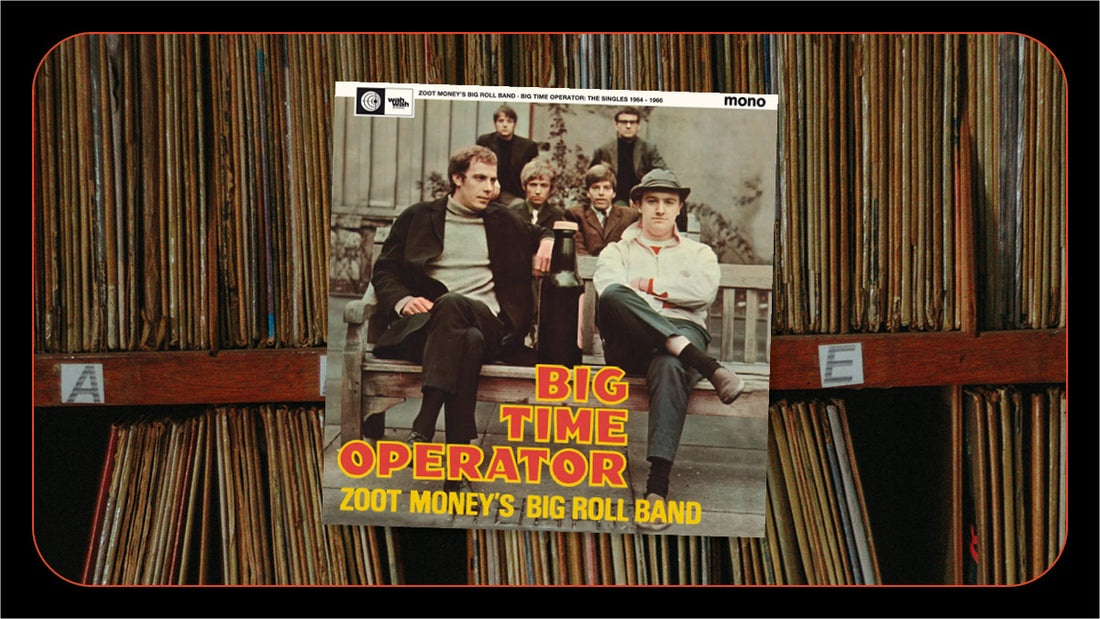
Big Time Operator - Zoot Money
Share
Caroline Stafford remembers English musician and bandleader George Bruno ‘Zoot‘ Money, who sadly died on the 8th September 2024. Caroline Stafford is the author of numerous acclaimed biographies with David Stafford including Anymore for Anymore and Big Time.
It seemed impossible to be a musician in England in the Sixties without running into George Bruno ’Zoot ‘ Money. He knew how to have a good time and was keen to share it. That man was a walking ‘Health and Safety’ nightmare.
Son of an Italian waiter, George was born in Bournemouth in 1942. At Portchester Road School he was a choir boy and learned to play the piano and the French Horn. With a couple of his schoolmates Zoot formed a skiffle group in the Fifties. Skiffle, that delightfully suburban rebellion, was a gateway drug for many future stars – John and Paul were the Quarrymen, Cliff was in the Dick Teague Skiffle Group, Roger Daltrey was in the Sulgrave Rebels. George’s skiffle group was called The Four Ales.
But he soon moved on to the harder stuff. He went to a jazz concert featuring saxophonist Zoot Sims at the Gaumont in 1958 and was so impressed that he stole his name. He added banjo to his repertoire and put together the Portchester Road Jazz Band. The staid name was to secure them the loan of his school’s double bass.
Zoot was deflected from all that jazz by exposure to Ray Charles and Jerry Lee Lewis and he started playing rolling rollicking good-time music, first in a band called The Stormers (the band auditioned for Reg Calvert’s Big Beat Show’ at the Holdenhurst Road Brill Hall) and then with The Blackhawks
Zoot’s next venture, the Big Roll Band, looked set for the big time (well bigger than drill halls and youth clubs anyway) when in 1961 it made its debut at the Downstairs Club, in the cellar of a greengrocer’s shop on Holdenhurst Road. A year later it was all Hammond organ screeches and adventurous sax in venues as exotic as the Ballito Nylon Stocking Factory and the Royal Arcade Ballrooms in Boscombe (where, while the resident orchestra were onstage, Zoot stood behind their bandleader and mimicked him with a lemonade straw for a baton)
The band underwent mergers and reshuffles to emerge as the Sands Combo, which became house band at the Pavilion Ballroom. For a time, the support act there was a group led by a certain Tony Blackburn, then a young hopeful singer in a sequinned jacket, later to become the first DJ ever to be heard on Wonderful Radio 1. Zoot poured scorn on Tony’s sequinned jacket and would announce him as ‘Tony Blackhead and the Pimples’.
Zoot had seen young Andy Summers playing at the Blue Note in Bournemouth. The two bonded and took to spending boozy evenings round at Zoot’s flat in Old Christchurch Road, playing Ray Charles records. By 1963, Andy had been recruited into the band - which had reverted from being the Sands Combo (again with reshuffles) to being The Big Roll Band
Then Alexis Korner came into their lives.
Alexis Korner was an Austrian/Greek guitar player born in Paris who would, at that time, have been in his mid-thirties. He was already a legend. He’d earned his stripes playing with Chris Barber and Ken Colyer in that British jazz revival. Alexis was an organiser. He helped set up the London Blues and Barrelhouse Club in a pub. People who, a year before, had not known what a mojo was, were now slowly figuring out how to get it working.
Alexis called Zoot and asked whether he would like to come up for London and join Blues Incorporated for a few dates. This was the equivalent of getting a call from Matt Busby to say that Man U were a bit short-handed for the Arsenal match on Saturday and the strip was in the post.
Zoot played the few dates with Alexis and decided to stay in London. He asked the rest of the Big Roll Band to join him as he had a couple of gigs at the Six Bells in Chelsea and the Marquee.
By spring of 1964, The Big Roll Band had a regular Monday night gig (Gentlemen admission 5 shillings, Ladies free) at Soho’s Flamingo Club
John Mayall had described the Flamingo as “a very dark and evil-smelling basement. It had that seedy sort of atmosphere and there was a lot of pill-popping. You usually had to scrape a couple of people off the floor when you emerged into Soho at dawn..."
The Flamingo attracted a diverse crowd - posh folk slumming, British West Indians from Brixton and Notting Hill, US military personnel on leave from the airbases and, as the 1960s got going, the cream of Mod society.
The Big Roll Band, with its repertoire of Ray Charles, James Brown, Jimmy Smith and the like, could have been tailor made for the place. The club’s manager, Rik Gunnel, was also a booking agent and fed the band gigs all over, sometimes as many as 13 a week. The pay was good, too. On a good night they could clear £400.
Zoot always gave terrific value for the money, climbing up all over his Hammond and dropping his trousers to whip up the excitement. Someone (probably Zoot himself) christened him the Flamingo Flasher.
He had a stage presence “like a psychotic Bud Flanagan” that could turn even the most unpromising assembly into a party. And after the show, it felt like all the bands and all the punters in London would crowd back to Zoot and Andy’s flat, so the party could go on and on. They even found time to release some records – their single ‘Big Time Operator’ got to number 25 in the charts in 1966.
Then there was a moment, never exactly dated, when the 1960s turned: when speed and booze was abandoned in favour of weed and acid, and Mohair and Mary Quant gave way to kaftans, paisley and crushed velvet.
Zoot became partial to the occasional trip and once spiked his brass section with predictably hilarious consequences.
By 1967 the Big Roll Band had been re invented as Dantalian’s Chariot" (named after the great Duke of Hell who governs the 36 legions of spirit, knows the thoughts of all men and women and who teaches the arts and sciences from a great book he has in his right hand – obviously)
They played the Festival of the Flower Children at Woburn Abbey, on an all-white stage playing white instruments, dressed in white clothing, turning everybody and everything into a blank screen on which they projected what was believed to be “the best light show in the country.” Goodbye to good time blues and barrelhouse and hello to acid rock and psychedelia with half hour guitar solos and atonal excursions. It was what people did at the time. They released a single ‘Madman Running Through the Fields’ (“Isn't that the madman, running through the fields? Isn't that the madman? Wonder how he feels.”). There was a flute solo.
After the band fell apart (it didn’t take that long) Zoot started playing with Eric Burdon and the re-formed Animals (this was the band’s third or fourth incarnation - sometimes it was called the New Animals, and technically it should probably have been called the New New Animals) and moved to America.
While he was touring with the Animals they fell foul of the Yakuza. When the band arrived in Japan they learned that the number of shows they were scheduled to perform was getting on for twice as many as the number they’d been contracted form and though the contract specified they were supposed to be paid in full, in cash, before they went on stage, only half the money ever appeared.
They understandably refused to do the extra gigs.
Then, one night, while they were on stage, their manager, Kevin Deverich, was kidnapped.
The promoters weren’t genial showbiz entrepreneurs, they were Yakuza, Japanese mafiosi. They told Kevin they wanted £25,000 compensation for the gigs that had been cancelled and threatened to cut off at least one of his fingers if he didn’t cough up (or maybe they threatened to shoot him - the versions vary).
The band got out of the country as quickly as possible, leaving their equipment behind. Still no news about Kevin.
Returning to England, Zoot played and recorded with many artists and in 1981 played on Steve Marriott and Ronnie Lane’s The Majic Mijits album. Sadly, Ronnie’s worsening MS meant they couldn’t tour.
Zoot later tried his hand at acting - he appeared in Absolute Beginners and Mona Lisa and developed his career as a record producer. He was the musical director on the brilliant BBC drama series Tutti Frutti in 1987 and toured with Alan Price around the UK.
He died on 8th September aged 82. Can’t help thinking he led the life that he wanted to.

1 comment
Brilliant 👏👏